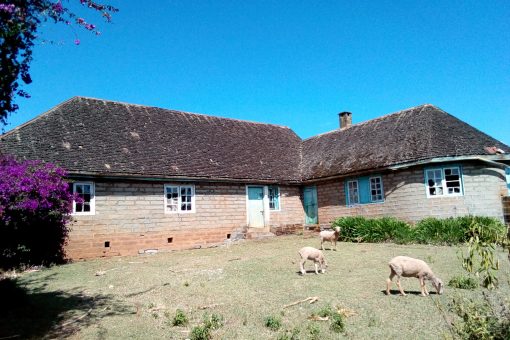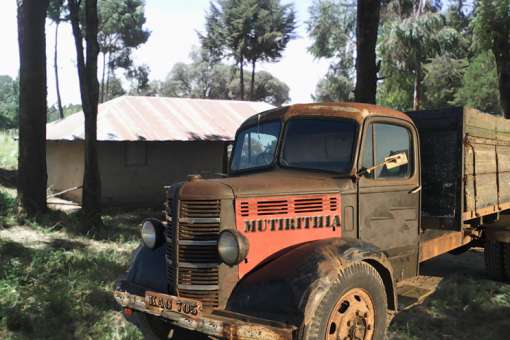When reporting to school, we all lined up in front of our parents, school fees structure paper in hand. Each of us received our exact amount of school fees. It was our responsibility to keep it safe until we handed it over to our school Bursar on arrival at our respective schools. We were to keep the receipt safe for the three months of the school term, bringing it home on closing day accompanied by the report form for the term that just ended.
My parents were like the IMF (International Monetary Fund). You presented your results for the school term that just ended, accompanied by the receipt that proved the funding that went into it. Investment and prevailing results hand in hand. We knew the results had to be good to match the investment my father put into it. Tough sponsors, I would say.
Anyway, at that point when we were lined up in-front of my parents, this was a time of sending us off to school, so we did not need to worry about results until after another three months. So, with school fees amounts safely stashed in our pockets, the next round of funding was bus fare to our various destinations. My father was well traveled and knew exactly how much bus fare costed on most of our destinations. He only asked us for confirmation and to test our honesty. We were given the exact amount for going, and an equal amount for our return trip when schools closed. It was our responsibility to keep it safe for the three months until we spent it on our return journey home at the end of the term. We stashed that in a different pocket to avoid any mix ups.
Then came the third and final round of funding. It was money for our back to school shopping. That was the joke. The boys got money for Lifebuoy soap for bathing, Omo and Panga Bar Soap for washing their clothes, Kiwi shoe polish and toothpaste. That usually amounted to Kes.10, according to our “Central Bank” cum “IMF” father. Off the top of his head, our father knew the prices of essential stuff that we needed for our back to school shopping. When he gave the boys the Kes.10, he knew exactly how many items it would purchase, enough to last an entire school term and nothing extra. For me, he added an extra five shillings for my feminine needs. My brothers, armed with Kes.10 each, and I with my Kes.15, it was up to us to decide how to spend that money, possibly leaving some three shillings extra for pocket money if we were lucky.
We had learnt financial lessons early in life and in the hardest way possible. It was up to us to set our priorities right, deciding how much we wanted to spend on what items and how much of each item to purchase if we wanted to be left with at least a few extra shillings from that “shopping fund”. We were bargain hunters from our childhood. We bought the cheapest of everything to increase our quantities. Had there been a bathing soap cheaper than Lifebouy, I am sure that is what the boys would have bought, just to save some money. For me, between Rexona and Lux soap, I bought the cheaper of the two. Problem was that there were not many options back then. The items on every shop shelf were from East Africa Industries, the current Unilever. The options were limited, so you took the lesser of two prices, sometimes no option at all. It is only because I knew girls did not use Lifebouy and I did not want the girls in my school laughing at me for using a boy soap, but a few times I was so tempted to buy Lifebouy since it was the cheapest bath soap, saving a few shillings for pocket money. But, peer pressure made me not go that route, because I wanted to be “groovy” like the rest of the girls in my school. Some of the girls especially from urban homes brought shopping like I had never seen. They had Palmolive bath soaps, fancy hair oils like Sateen Sheen, face creams like Ponds, lotions like Lady Gay and heavenly scented body sprays. They had packets of goodies like Family size boxes of Marie biscuits, Nice and Digestive etc. They had tins of Blue Band, various jams, Chocolate Candy Bars, Milo, Drinking Chocolate, Sugar, Peanuts, Popcorn, bottles of Tree Top and TruFru juice, you name it, they had it. Remember these are the same students whose parents visited every end of the month, bringing them more shopping and replenishing their snacks stock and more pocket money.
Compare that to my skimpy shopping that had to last me the whole term: 5 Rexona soaps, Vaseline Petroleum Jelly (could not afford Lotion), Liquid Paraffin Oil for my hair, Omo and bar soap, Colgate, Kiwi shoe polish and a roll of cotton wool for my feminine needs while my urban classmates used real sanitary pads like Stayfree or O.B. Tampons. But regardless of my shopping being skimpy, it wiped out my entire Kes.15, I could not afford even the cheapest packet of biscuits if I wanted. But we had been raised to be contented with what we had without comparing ourselves to other people or desiring what they had. It was not an easy thing to do, but we followed it because our parents taught us so, but I can tell you it stings. It stings real bad. Who doesn’t want nice things?”
Anyhow, my father did not believe in students having money to spend as they wish. He argued that the school fees he just gave us catered for our tuition, meals and accommodation for the three months term. He reminded us that our schools were holding medical and caution money incase of an emergency. What would we need extra money for, he wondered? Nobody had the guts to ask for more from our father.
We went through high school in that fashion and we never asked for anything extra. We did not expect our parents for visiting days or parents days and we never went home for half term. We hated our parents “stinginess” and we obviously felt deprived, almost unloved, especially in the midst of other students who seemed to have plenty of everything. They were visited every month and they went home for half term, coming back loaded with homemade goodies and fresh shopping.
But when I look back, my heart goes out to my parents. SIX kids in high school at the same time, it is amazing they managed to educate us all. They still had our youngest in a boarding Primary school, and they had all their other financial obligations to meet. How did they manage?
Hats off to my wonderful parents and to all Pioneer Parents everywhere who were going through similar circumstances with their own children. Our education came at a very ‘high price’ to our parents. God bless them all. I hope we are worthy of their sacrifice.



